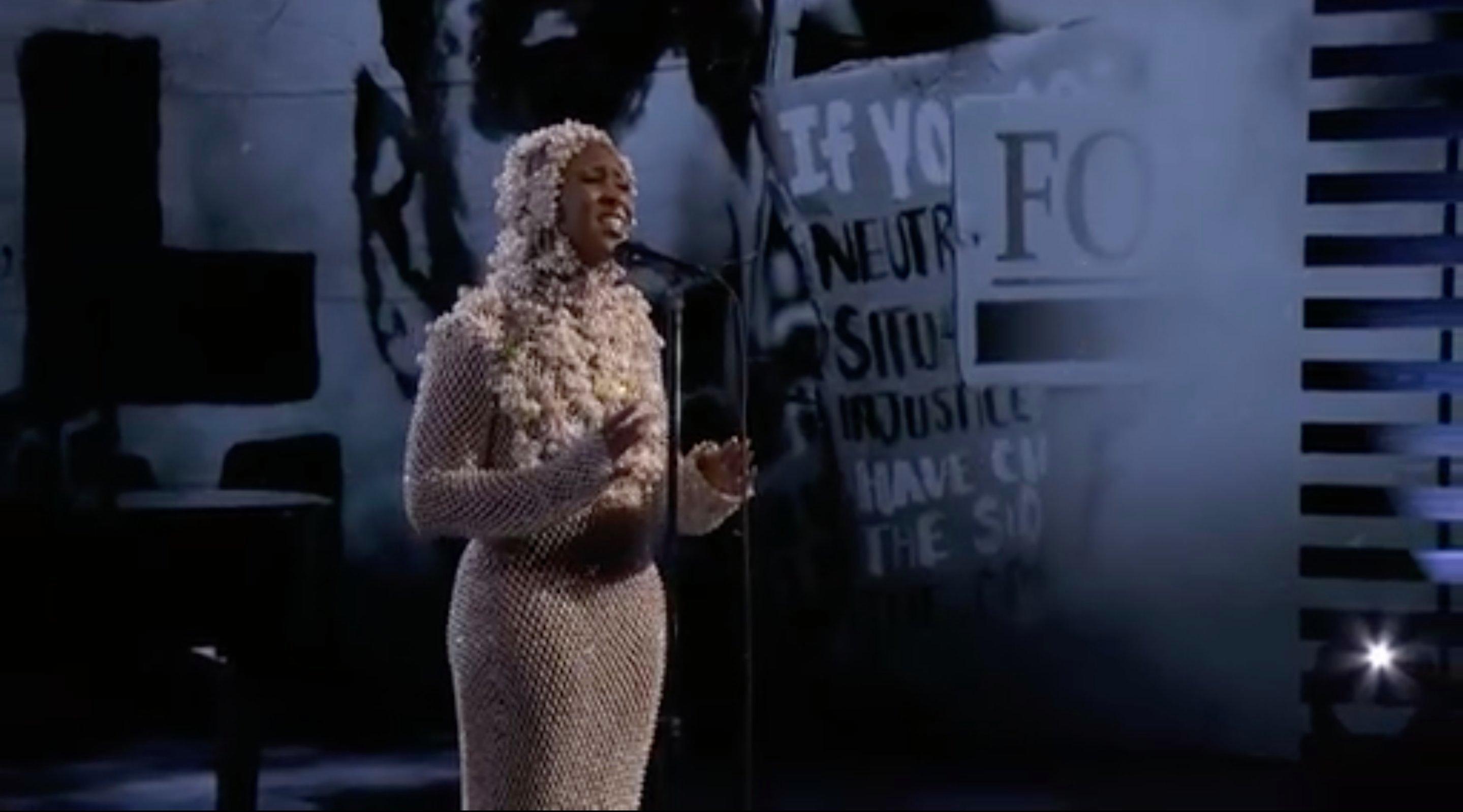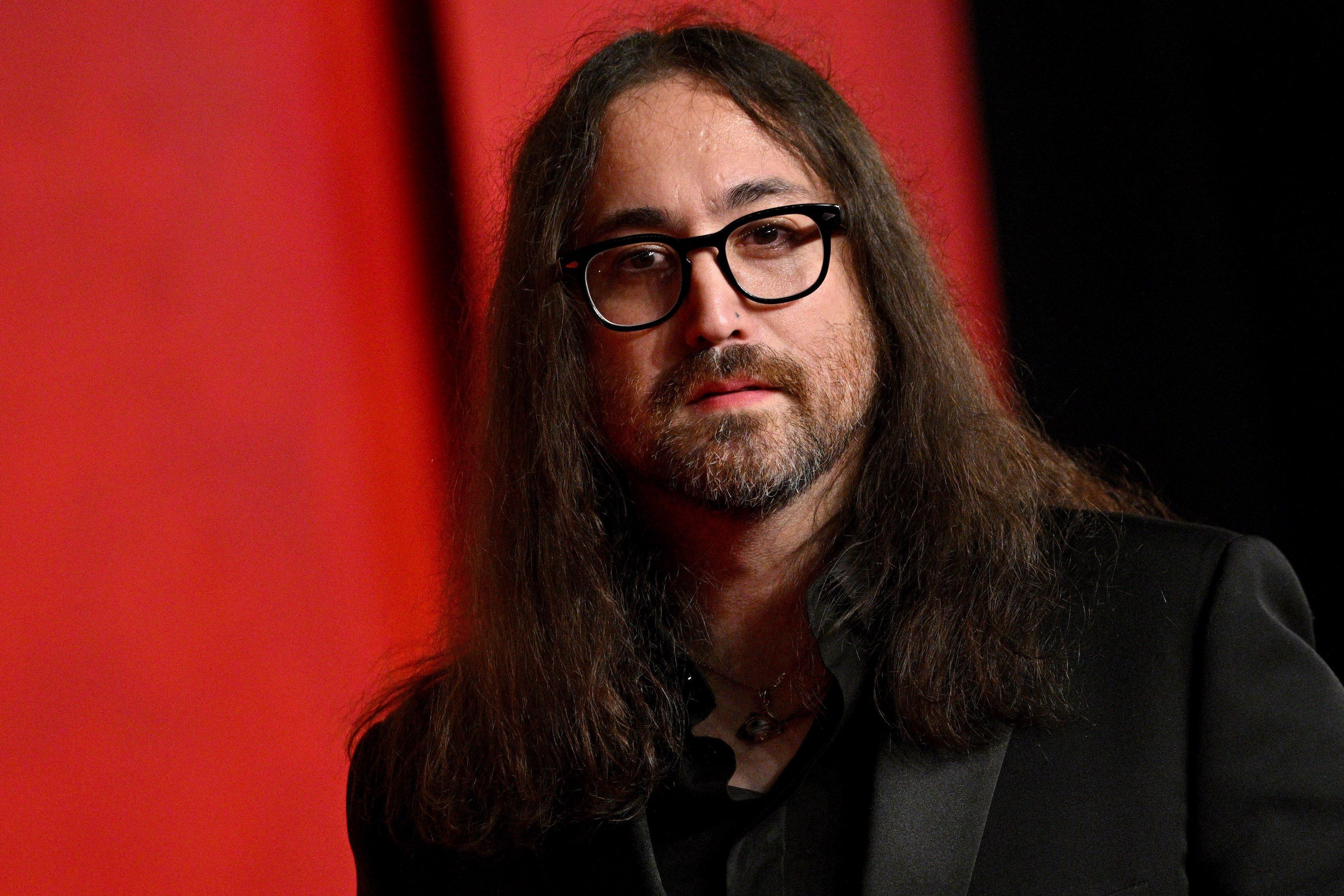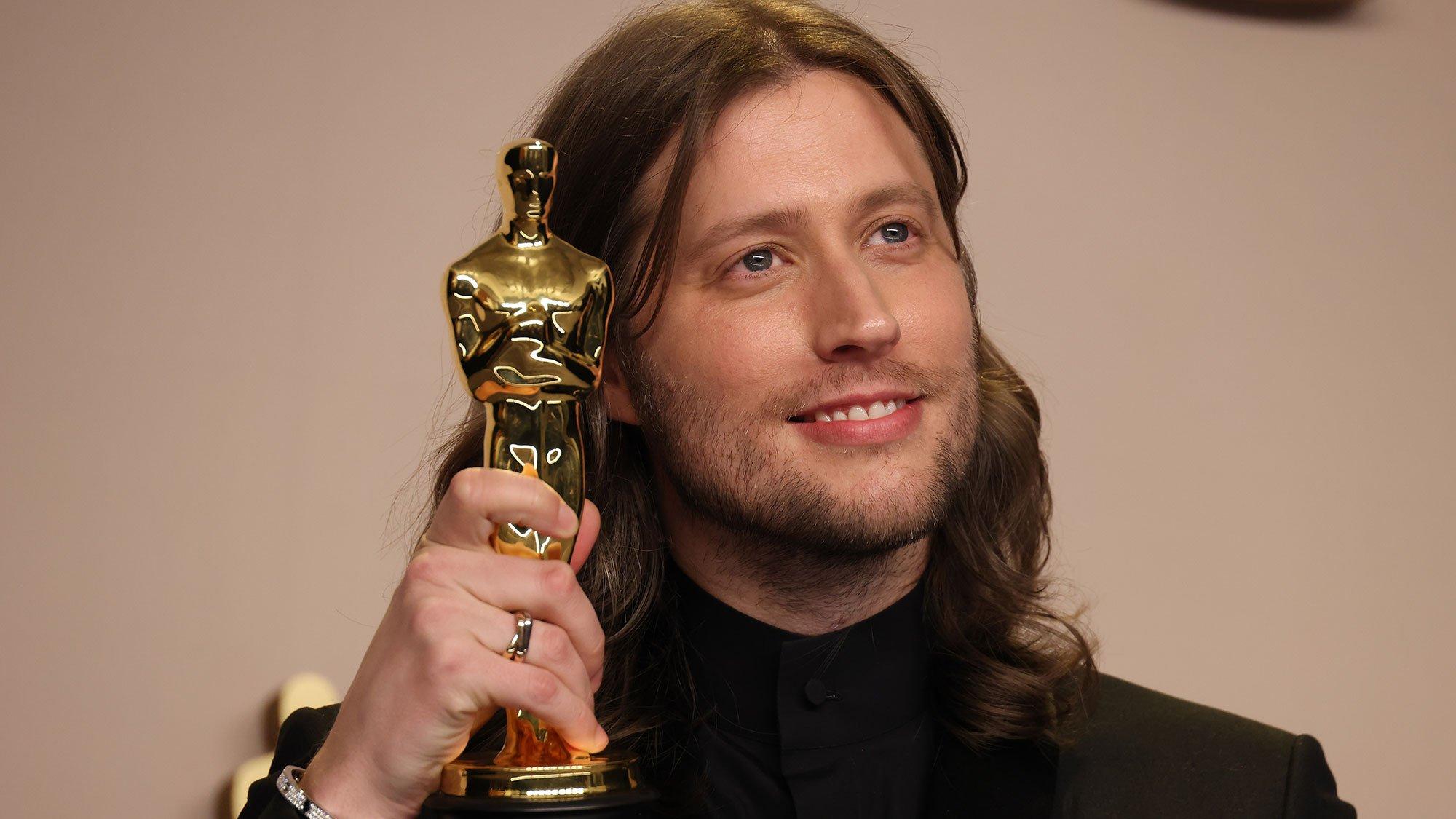Marketing himself as a solo musician is a little excruciating for Sean Ono Lennon. It might be for you, too, if you had globally renowned parents. Despite his musical triumphs over the years, Lennon is reticent to join the solo artist racket.
Which made a certain moment at the 2024 Oscars absolutely floor him: Someone walked up to Lennon and told him "Dead Meat," from his last solo album, 2006's Friendly Fire, was his favorite song ever. Not just on the album, or by Lennon. Ever.
"I was so shocked. I wanted to say something nice to him, because it was so amazing for someone to say that," Lennon tells GRAMMY.com. "But it was too late anyway." (Thankfully, after he tweeted about that out-of-nowhere moment, the complimenter connected with him.)
It's a nice glimmer of past Lennon, one who straightforwardly walked in his father's shoes. But what's transpired since 2006 is far more interesting than any Beatle mini-me.
Creatively, Lennon has a million irons in the fire — with the bands the Ghost of a Saber Tooth Tiger, the Claypool Lennon Delirium, his mom's Plastic Ono Band, and beyond.
And in 2024, two projects have taken center stage. In February, he delivered his album Asterisms, a genreless instrumental project with a murderer's row of musicians in John Zorn's orbit, released on Zorn's storied experimental label Tzadik Records. Then just a few weeks later, his 2023 short film War is Over! — for which he co-wrote the original story, and is inspired by John Lennon and Yoko Ono's timeless peace anthem "Happy Xmas (War Is Over)" — won an Oscar for Best Animated Short Film.
On the heels of the latter, Lennon sat down with GRAMMY.com to offer insights on both projects, and how they each contributed to "really exciting" creative liberation.
This interview has been edited for clarity.
You shouted out your mom at the Oscars a couple of months back. How'd that feel?
Well, honestly, it felt really cosmic that it was Mother's Day [in the UK]. So I just kind of presented as a gift to her. It felt really good. It felt like the stars were aligning in many ways, because she was watching. It was a very sweet moment for me.
What was the extent of your involvement with the War Is Over! short?
Universal Music had talked to me about maybe coming up with a music video idea. I had been trying to develop a music video for a while, and I didn't like any of the concepts; it just felt boring to me.
The idea of watching a song that everyone listens to already, every year, with some new visual accompaniment — it didn't feel that interesting. So, I thought it'd be better to do a short film that kind of exemplifies the meaning of the song, because then, it would be something new and interesting to watch.
That's when I called my friend Adam Gates, who works at Pixar. I was asking him if he had any ideas for animators, or whatever. I knew Adam because he had a band called Beanpole. [All My Kin] was a record he made years ago with his friends, and never came out. It's this incredible record, so I actually put it out on my label, Chimera Music.
But Adam couldn't really help me with the film, because he's still contractually with Pixar, and they have a lot of work to do. But he introduced me to his friend Dave Mullins, who's the director. He had just left Pixar to start a new production company. He could do it, because he was independent, freelance.
Dave and I had a meeting. In that first meeting, we were bouncing around ideas, and we came up with the concept for the chess game and the pigeon. I wanted it to be a pigeon, because I really love pigeons, and birds. We wrote it together, and then we started working on it.
So, I was there from before that existed, and I saw the thing through as well. I also brought in Peter Jackson to do the graphics.
This message unfortunately resonates more than ever. Republicans used to be the war hawks; now, it's Democrats. What a reversal.
It just feels like we live in an upside-down world. Something happened where we went through a wormhole, and we're in this alternate reality. I don't know how it happened. But it's not the only [example]; a lot of things just seem absolutely absurd with the world these days.
But hopefully, it points toward something better. I try to be optimistic. In the Hegelian dialectic, you have to have a thesis and antithesis, and the synthesis is when they fuse to become a better idea. So, I'm hoping that all the tension in society right now is what the final stage of synthesis looks like.
How'd the filmmaking process roll on from there?
Dave had made a really great short film called LOU when he was at Pixar; that was also nominated for an Oscar. He and [producer] Brad [Booker] know a ton of talented people; they have an amazing character designer.
We started sending files back and forth with WingNut in New Zealand; they would be adding the skins to the characters.
One of the first stages was the performance capture, where you basically attach a bunch of ping pong balls to a catsuit and a bicycle helmet. You record the position of these ping pong balls in a three-dimensional space. That gives you the performance that you map the skins onto on the computer later on.
For a couple of years, there was a lot of production. David and his team did a really good job of inventing and designing uniforms for the imaginary armies that never existed, because we really didn't want to identify any army as French or British or German or anything.
We wanted to get a kind of parallel universe — an abstraction of the First World War. We designed it so that one army was based on round geometry, and the other was based on angular geometry.
It was a long process, and it was really fun. I learned a lot about modern computer animation.
Between Em Cooper's GRAMMY-winning "I'm Only Sleeping" video and now this, the Beatles' presence in visual media is expanding outward in a cool way.
I think we've been really fortunate to have a lot of really great projects to give to the world. I've only been working on the Beatles and John Lennon stuff directly in the last couple of years, and it's been really exciting for me.
And a big challenge, obviously, because I don't [hesitates] want to f— up. [Laughs.] But it's been a real honor. And I'm very grateful to my mom for giving me the freedom to try all these wacky ideas. Because a lot of people are like, "Oh, when are you going to stop trying to rehash the past with the Beatles, or John Lennon?"
Because the modern world is as it is, I feel like we have a responsibility to try to make sure that the Beatles and John Lennon's music remains out there in the public consciousness, because I think it's really important. I think the world needs to remember the Beatles' music, and remember John and Yoko. It's really about making sure we don't get lost in the white noise of modernity.
I love Asterisms. Where are you at in your journey as a guitarist? I'm sure you unlocked something here.
Like it's a video game. It's weird — I don't even consider myself a guitar player. I'm just, like, a software. But I think it's more about confidence — because it's really hard for me to get over my insecurity with playing and stuff.
For so many different reasons, it's probably just the way I'm designed — being John and Yoko's kid, growing up with a lot of preconceived notions or expectations about me, musically.
So, it's always been hard to accept myself as a musician, and this was kind of a lesson in getting over myself. Accepting what I wanted to play, and just doing it.
This is my Tzadik record, so it had to be all these fancy, amazing musicians. It doesn't matter what your chops are: it's more about how you feel, and the feeling you bring to your performance.
Once we recorded, it sounded amazing, because we recorded live to tape. So, everything on that album is live, except for my guitar solos. I didn't play my solos live, because I had to play the rhythm guitar. I was just paying attention to the band and cueing people. Once we finished the basic tracks, it just took us a couple of days, and it was done.
It was the simplest record I've ever done, because there were no vocals, so there wasn't a lot of mixing process. We recorded live to 16-track tape, and it was done.
I caught wind a couple of years back that you were working on another solo record simultaneously. Is that true?
I was working on a solo record of songs with lyrics. I finished it, and — I don't know, I think this speaks to the mental problems I have — but I didn't like it suddenly, and i never put it out. I just felt weird about it. I think I overthought it or something.
Then Zorn asked me to do an instrumental thing, and it was a no-brainer, because I've been a fan my whole life. The idea of getting to do something on his label was really an honor.
I got turned on to so many amazing musicians from Zorn, like Joey Baron, Dave Douglas, Kenny Wolleson, and Marc Ribot. Growing up in New York, that's always been my idea of where the greatest musicians are — Zorn and his gang.
Why'd you feel weird about the other album? Did it just not have the juice?
It's not that I didn't think it had the juice. I just got uncomfortable with the idea of putting out a solo record, and the whole process. I got nervous. I still think it's good. But I don't know if it's good enough to warrant me releasing it.
That's fine playing in bands, like the [Claypool Lennon] Delirium and GOASTT [Ghost of a Saber Toothed Tiger]. It takes a degree of unnecessary pressure off of making music. But as soon as your actual birth name is on the record, it starts to feel uncomfortable for me.
People are ruthless today, period. But they're especially critical of me with music. So, it's like, Do I really need to do that s—? It's a little more awkward: "I, myself, Sean Lennon, am putting out my art, and here it is." I'd rather be part of the band.
The Beatles' Final Song: Giles Martin On The Second Life Of "Now And Then" & How The Fab Four Are "Still Breaking New Ground"


.jpg)

.webp)





